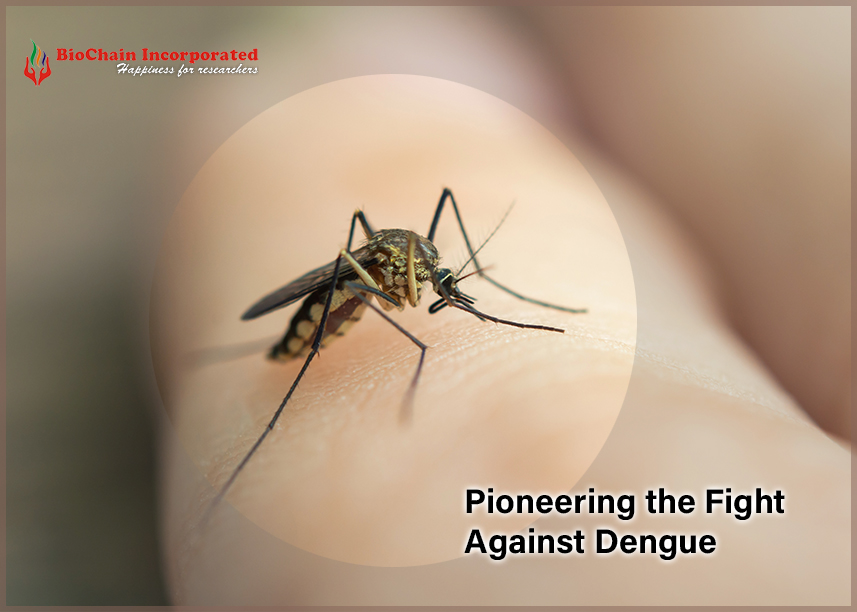The Power of Recombinant Proteins in Dengue Vaccine Development
Dengue, a mosquito-borne viral infection, continues to pose a significant global health threat. In the quest for an effective vaccine, recent advancements in recombinant protein-based dengue vaccines have sparked optimism. Let's delve into the groundbreaking developments that are reshaping the landscape of dengue prevention.
Understanding Dengue Virus Proteins:
Dengue virus proteins play a crucial role in the infection process, making them prime targets for vaccine development. Researchers focus on identifying key viral components to create vaccines that trigger robust immune responses. Among these proteins, the envelope (E) and non-structural protein 1 (NS1) have emerged as prominent candidates due to their immunogenic properties.
Advantages of Recombinant Protein-Based Vaccines:
-
Targeted Immune Response: Recombinant protein-based vaccines allow for precise targeting of specific viral proteins, triggering a focused and potent immune response. This specificity enhances the vaccine's efficacy in preventing dengue infection.
-
Reduced Risk of Adverse Reactions: By utilizing purified viral proteins rather than live or inactivated viruses, recombinant protein vaccines minimize the risk of adverse reactions. This makes them a safer option for a broader range of individuals, including those with compromised immune systems.
-
Cross-Protective Potential: Recombinant protein-based vaccines offer the potential for cross-protection against multiple dengue virus serotypes. This is crucial as dengue exists in four distinct serotypes, and an effective vaccine must provide immunity against all of them to be truly impactful.
Recent Breakthroughs in Dengue Vaccine Development:
-
Phase III Clinical Trials: Several recombinant protein-based dengue vaccines have progressed to advanced stages of clinical trials, including Phase III. These trials assess the vaccine's safety and efficacy in large populations, representing a crucial step toward regulatory approval.
-
Efficacy Against Multiple Serotypes: Some of the recent vaccines have shown promising results in protecting against all four dengue virus serotypes. This represents a significant breakthrough, addressing the challenge of creating a broadly effective vaccine.
-
Long-lasting Immunity: Ongoing research aims to develop vaccines that confer long-lasting immunity, potentially reducing the need for frequent booster shots. This is a critical aspect for achieving sustained protection in populations at risk of dengue.
Recombinant Protein Suppliers in India:
India, a hotspot for dengue transmission, plays a pivotal role in the global efforts to combat the disease. The availability of high-quality recombinant proteins is integral to vaccine development. Several reputable suppliers in India, including Biochain, have been at the forefront, providing researchers and pharmaceutical companies with the essential tools for advancing dengue vaccine research.
Final Words
The targeted and innovative approaches, coupled with the contributions of reliable suppliers like Biochain, inspire confidence in the potential for an effective dengue vaccine that can make a transformative impact on global public health.
As a distinguished supplier of life science research tools, Biochain has been instrumental in supporting dengue vaccine research in India and beyond. Their commitment to delivering high-quality recombinant proteins has contributed to the progress of groundbreaking studies aiming to eradicate the threat of dengue.



.png)
.png)

.png)


.png)
.png)
.png)
.png)